Journaling For Beginners

Journaling for beginners guide: How to Use a Journal to Discover Yourself
Keeping a journal is a fantastic way to get to know yourself. It reveals your deepest thoughts and feelings, helping you to really connect with who you are. You’ll discover things about yourself you never knew before and in turn this can help you to discover what you really want in life.
However, starting a journal can be pretty daunting. It’s difficult to know where to start and how to use it for self-discovery purposes. If you’re struggling, here you’ll learn more about how to use a journal to discover yourself.
Writing down your fears and doubts
There are numerous ways you can use a journal for self-discovery purposes. Using it to write down your fears and doubts is one of the best ways you can start.
The trouble with fears and doubts is, they can manifest into much bigger problems in your head.
When you bottle things up, they can start to feel a whole lot worse than they really are.
So, writing them down not only gets them out of your head, but it also gives you the opportunity to see what you can do to resolve them.
You can look at them more clearly once they’re written down in front of you. Explore where these fears and doubts come from, and try to look at them without judgement.
You’ll be surprised just how much learn about yourself and your ability to overcome the fears and doubts in your life.
Write about your passions and the things you enjoy
Of course, it’s also important to write positively for self-discovery. If you focus purely on the negative, it’s not going to prove very helpful in the long-term. So, write about your passions and the things you actually enjoy.
You can also extend this to include a list of the things you’re grateful for. This helps you to start thinking more positively, automatically improving your mindset.
Identifying what you’re passionate about will help you discover what makes you tick. Once you know what makes you happy, you can resolve to do more of whatever that may be.
You could also write down the things you were passionate about as a child. Getting in touch with your inner child can be a really joyful experience.
It could even be that you’ve neglected the things you’re passionate about. Reigniting your love for something could be just what you need to live a more fulfilled life.
Consider writing in the third person
Ok, so this may sound a little weird, but writing in the third person can actually really help you to come up with solutions to any existing problems you may be having.
It distances you from the issue, enabling you to look at it from a totally different perspective.
Often, it’s possible to overcome situations and issues in life when you can see it from different angles.
So, why not give it a go – start writing in the third person for any issues you can’t seem to resolve. What advice would you give to someone in the same position?
This is a really useful exercise which can help you to identify new solutions to problems you’ve been having.
Use prompts to help you become more self-aware
If you really want to get to know yourself, there’s a few prompts you can use. For example, find one of your favorite inspirational quotes and then create an entire blog page about it.
You can also ask yourself questions such as “what do I feel is missing from my life?”.
Any deep questions which require a well-thought-out response will help you to discover more about who you truly are.
Journaling has so many self-discovery benefits. The above are just a small selection of the most effective ways to use a journal for self-discovery purposes.
Remember, the more you use the journal, the more you’ll discover about who you are.
Proven Journal Techniques That Help You Heal for Your Self-Discovery
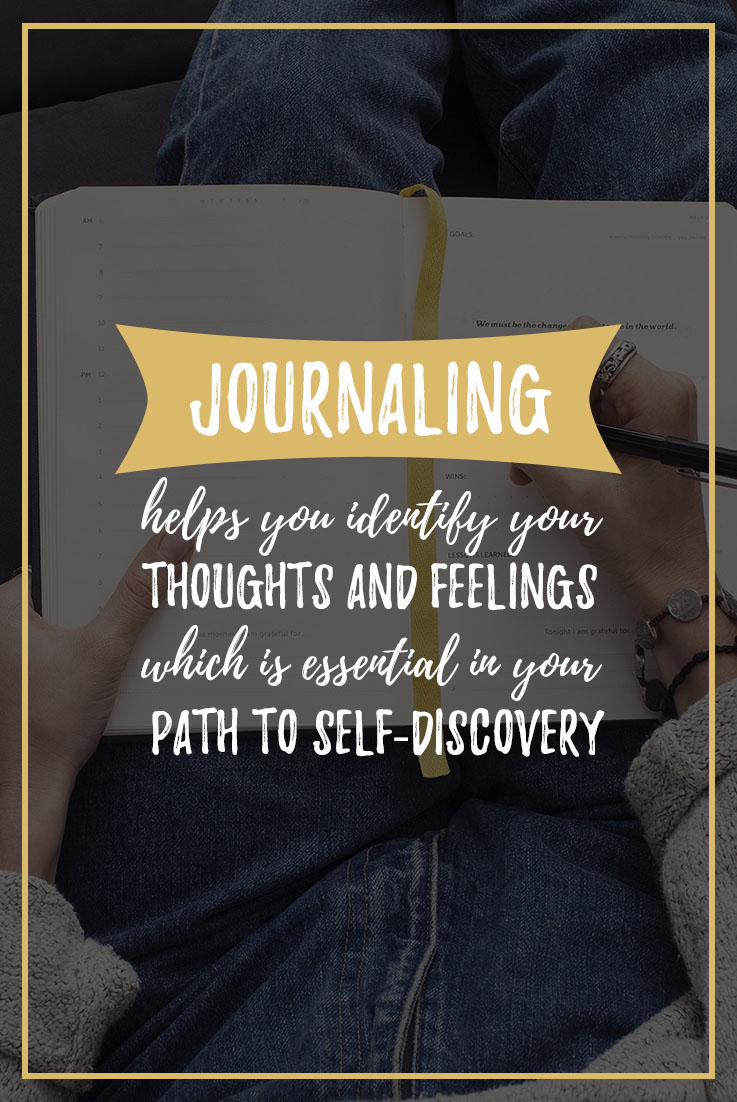
Do you constantly find yourself feeling anxious, depressed or run down?
Even if you know the cause of these negative feelings, it can be difficult to know how to eliminate them.
Journaling has proven to be exceptionally effective at helping people to move on from whatever has been holding them back.
Also referred to as “writing therapy”, keeping a regular journal can do wonders for your mental health.
So, if you’re looking to heal and move forward into a happier, more fulfilled life, below you’ll discover some proven journal techniques which can help.
You will also discover more about journaling for beginners and its benefits.
Journaling and it’s benefits
Journaling is otherwise referred to as writing therapy and it’s well known for its extensive range of benefits. It works much like a diary, where you write down your thoughts and feelings each day.
However, unlike a diary, you also use the journal to analyze these thoughts and feelings.
It is this which helps you to really connect with your inner self and work towards overcoming any negative thoughts and feelings which may be holding you back.
Another benefit of journaling is that it can also help you to become more mindful.
Mindfulness has become an important tool for helping people to live a calmer, happier and more fulfilled life.
It teaches you to live in the present, rather than dwelling on the past or worrying about the future.
The above are just two of the main benefits journaling delivers. The question is, how can you use it in order to gain these benefits?
Proven techniques you can follow
There’s a few proven journaling techniques you can follow to help you heal. Just some of them include:
Make sure you write every day – When you’re just starting out with journaling, you may find you need to force yourself to write every day.
Until you get used to it, it’s easy to forget or put off writing your thoughts and feelings down.
Like anything, journaling is a habit which you need to build-up. So, schedule some time to write in your journal every day.
The more you do it, the easier you’ll find it to identify with how you feel.
This in turn will help you to move forward and let go of any negative thoughts and feelings you’ve been carrying around.
Write freely and truthfully – This is another thing which may take some practice.
You may be used to bottling things up and holding back on how you truly feel. However, your journal isn’t going to help if you aren’t 100% truthful.
So, when you’re writing, just write whatever it is that comes into your head. It doesn’t have to follow a narrative or even make much sense. You can analyze what you’ve written afterwards.
By writing freely you might just be surprised by the thoughts and feelings which come to the surface. It can be really freeing letting go of things you didn’t even realize were still bothering you.
Make sure you’re writing enough – Although you shouldn’t have any set limits when journaling, it is a good idea to make sure you’re writing enough.
Try to write at least one full page each time you use the journal. That way, it will ensure you go into depth about your thoughts and feelings.
If you don’t write enough, you’re going to find it difficult to use the journal for healing purposes.
If you follow the techniques above, you’ll be in a good position to heal and move forward. Analyze what you’ve written and try to look at it from a non-judgmental point of view.
Even just the act of writing down your troubles can make a huge difference to how you feel.
Journaling and Writing for Personal Growth

I Am Grateful For…: Cherry Blossom Golden Decorative lined page simple Gratitude Journal for lovers of Oriental designs
Journaling For Mental Health

If you are someone that suffers from stress, anxiety, or depression, you should definitely be writing in your journal every single day.
Journaling is therapeutic, helps you get rid of all those thoughts and feelings without burdening someone else, and provides a host of benefits for various mental health disorders.
You Can Gain More Clarity
Keeping a journal can also provide you with more clarity. You are writing down all of your thoughts and feelings, which in turn can really help you to see what your innermost thoughts are.
Even if you don’t realize it right now, you might have certain feelings that you don’t realize are there.
This is why it is important to have a journal only you can read, because then you feel comfortable being completely open and honest.
By doing this, you are able to gain a lot of clarity about yourself and your life.
It Helps You to Be More Creative
Journaling for beginners is an excellent way to release your inner creativity that might have been hiding there.
Perhaps you get so caught up in your day to day life that you don’t often have the opportunity to be creative.
Journaling is a form of self expression, even if you are just writing down what you did that day.
By performing this self expression on a regular basis, you really can start being more creative in other areas of your life.
Journaling Lets You Find Your Triggers
There are certain triggers you might be dealing with in relation to your different mental health disorders.
There are situations and people that can lead to having a day where your depression worsens, you feel more stress, or your anxiety causes severe panic attacks.
By journaling every day, you can look for certain patterns that will show what might be causing these things. It can be anything from drinking caffeine to dealing with a certain co-worker.
So many different situations and events can trigger your mental health episodes, and it is important o know what they are.
Even if you see a therapist, they often recommend writing in a journal every day.
It Becomes a Way to Release Your Burdens
Mental health is often more difficult to deal with when you don’t have a way to release your mental burden.
If you keep all of those thoughts and feelings bottled up, it makes everything harder to deal with.
If you don’t feel comfortable talking to someone, then you can write in a journal and still feel like you are letting all of that out.
Daily Reflections Dated Journal: Vintage Circles | Page to a Day 365 Daily Quotes 11"x 8.5" Paperback Diary Planner
Journaling For Physical Health

Keeping a journal is very beneficial to your physical health, whether you are trying to figure out why you have allergy attacks, lose weight, or just manage your general health.
Consider these different benefits of journaling for your physical health.
You Can Log What You Eat
One way journaling helps with physical health is by looking at what you are eating on a daily basis. This is important for a number of reasons.
First of all, by knowing what you eat, you can see what type of nutrition you are getting, and what you might be lacking.
You might find that while you eat plenty of whole grains, you aren’t getting enough fruits and vegetables on a daily basis, or that you aren’t drinking enough water for proper hydration.
Another way it helps you is by tracking what you eat in order to lose weight.
You can see where your biggest issues are with food and work to improve them.
It Helps You Notice Various Ailments
There may be physical ailments you are dealing with that aren’t made obvious right away.
Start a journal and write down how you are feeling on a physical level every day.
Be honest and pay attention to your different body cues. Perhaps you have a headache one day, and another day your stomach hurts.
Also write down what you were doing, eating, and drinking that day.
You may soon notice patterns, such as always getting headaches when work is stressful.
You Can Keep a Schedule of Activities
If you are working on your fitness, the journal is a great way to keep track of your daily physical activities.
Perhaps you want to do arms and legs on alternating days if you do strength training, and having a little calendar in your journal helps you keep track.
You might also want to follow the trends of your regular physical activity each day by wearing a pedometer or fitness tracker and recording the data in the journal each day.
There are a lot of ways to use a journal for your physical health.
Identify Triggers For Emotional Eating
Emotional eating is unfortunately very common, often stemming from stress or anxiety in your life.
You feel sadness, depression, anxiety, or other issues and you use food as a way to cope with it, similar to how people use substance abuse to deal with their problems.
If you know you have been emotionally eating, but don’t know why, journaling every day can help you look for patterns.
3 Year Journal: Butterflies Design: 8.5"x 11" Paperback undated Planner 150 pages
Reinvent Yourself Through Journaling
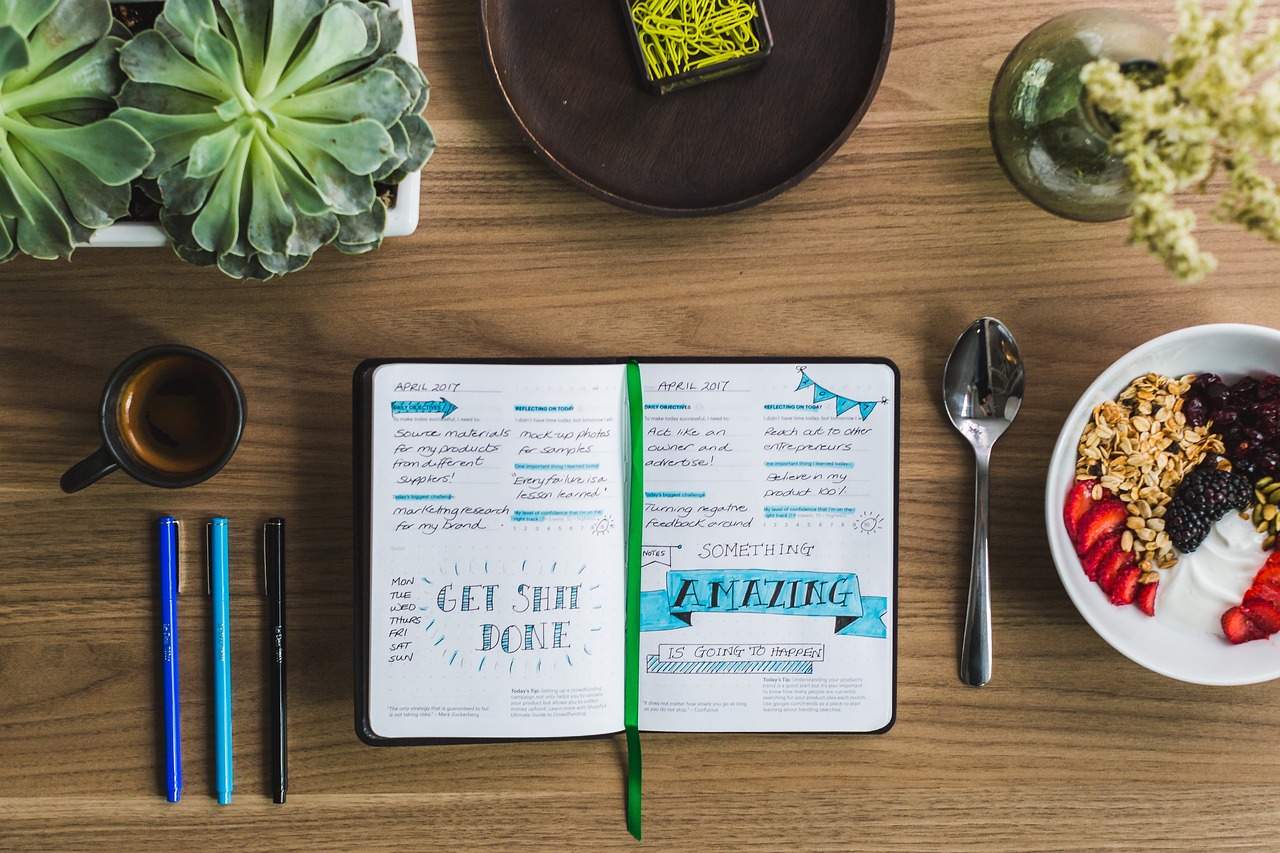
One of the greatest lies we tell ourselves is that we’re stuck in a rut.
However, did you know it’s not only possible to change your situation, but to also change yourself too?
The mind is a powerful thing. It can be our greatest ally or our biggest enemy.
The key to reinventing yourself is to gain control over the mind and start living the life you want to live.
One way you can do this, is by keeping a journal.
Here, you’ll discover 5 ways to reinvent yourself through journaling.
Ok, so this one may sound a little silly, but the journal you choose can actually have a significant impact on how effective it is. Your journal is supposed to inspire and motivate you to use it.
So, if you don’t absolutely love it, you’re not going to feel very inspired.
Take your time to choose the right journal. Think about its design and how the pages are set out. Do you love it? Can you see yourself writing in it every day?
It may sound a little ridiculous, but the right journal will actually pick you.
2. Start by writing about the things you’re grateful for
Once you’ve got the right journal, figuring out how to start it can be pretty tough. So, if you’re struggling, start by writing a list of the things you’re grateful for.
This can either be done first thing in the morning or last thing in the evening. There are advantages of doing it during both times, so it’s all about what works for you.
All too often, we spend most of our time focusing on the things we don’t have or the things we wish we had.
This makes us forget about the positive things we do have.
Journaling helps you to focus on the positive things in the here and now, rather than wasting time and energy wishing for something more.
So how can this help you to reinvent yourself? Well, the more positive you are, the easier you’ll find it to make a change.
It’s often our own negativity which sets us back in life so anything which makes us become more positive can help us to reinvent ourselves.
3. Be 100% honest
Journaling isn’t going to help you if you aren’t 100% honest. The trouble is, you may find you spend so much time hiding how you really feel, that being 100% honest about your thoughts and feelings can be difficult to start with.
You need to remember that your journal is a safe place. It’s a non-judgmental space which enables you to say exactly how you feel with no repercussions or judgements.
Once you’re totally honest about your thoughts and feelings and what you want from life, you’ll be able to see what you need to do in order to change.
4. Write down your goals
Use the journal to write down what it is you want to achieve. This can be done in the form of short term and long-term goals. It’s important to see the big picture.
Where do you want to be in 3-5 years and how could you potentially get there?
Writing down your goals and identifying the steps you need to take to make a change, will help massively.
5. Make it a routine
It’s important to use your journal daily. Set up a daily routine where you write in your journal at a specific time.
Once you’ve gotten used to writing in the journal, it will become an automatic habit you carry out each day.
As with anything, in order to reinvent yourself you need to be persistent and committed. So, be sure to write in your journal every single day.
Different Methods of Journaling For Beginners

You don’t have to feel forced to keep a certain type of journal, since there are so many different ways to use one. Here are just some of the many methods of journaling you can use.
General Journal
The first method of journaling is the most traditional form, which is where you simply write down your thoughts as often as needed.
You might write in the journal a couple days a week when you have the time or a reason to do so, or you may journal once a day at the end of the day, similar to keeping a diary.
This method is the most flexible since it is really up to you how you want to do it.
With a general method of journaling, the frequency, what to include, and type of journal organization you use is entirely up to you.
Bullet Journal
This is a newer form of journaling, but one that is getting popular very fast.
Bullet journaling provides a way to keep track of everything in your daily life, including finances, goals and bucket lists, family life, work, mental and physical health, and tons more.
With bullet journaling, you are using primarily symbols and short words or phrases to discuss different things instead of full pages of writing like with a general or standard form of journaling.
It also has an index and page numbers since there are so many different sections in the journal.
Dream Journal
There are journals about a specific topic, such as your dreams. If you are someone with confusing, elaborate, or vivid dreams, a DREAM JOURNAL is the perfect journal to keep.
You can have a dream section in a bullet journal, or dedicate one small journal to nothing but recording your dreams.
It helps to write them down immediately upon waking, as you will forget them rather quickly.
Gratitude Journal
A gratitude journal is one where you aren’t just talking about all your thoughts or what you do day to day, but actually only talks about the good things.
It is meant to help you practice mindfulness and live a happier life through gratitude.
You look at the positive parts of your day, no matter how big or small they are, and put those in your gratitude journal.
By doing this, you are able to focus more on the things in your life and dwell less on the bad things.
Over time, you can start to heal and live a more optimistic life.
Guided Journal: Owl Cover | Illustrated Writing Prompts Gratitude Journal in full colour, with nature themed ideas to ponder
Why Everyone Should Have a Journal
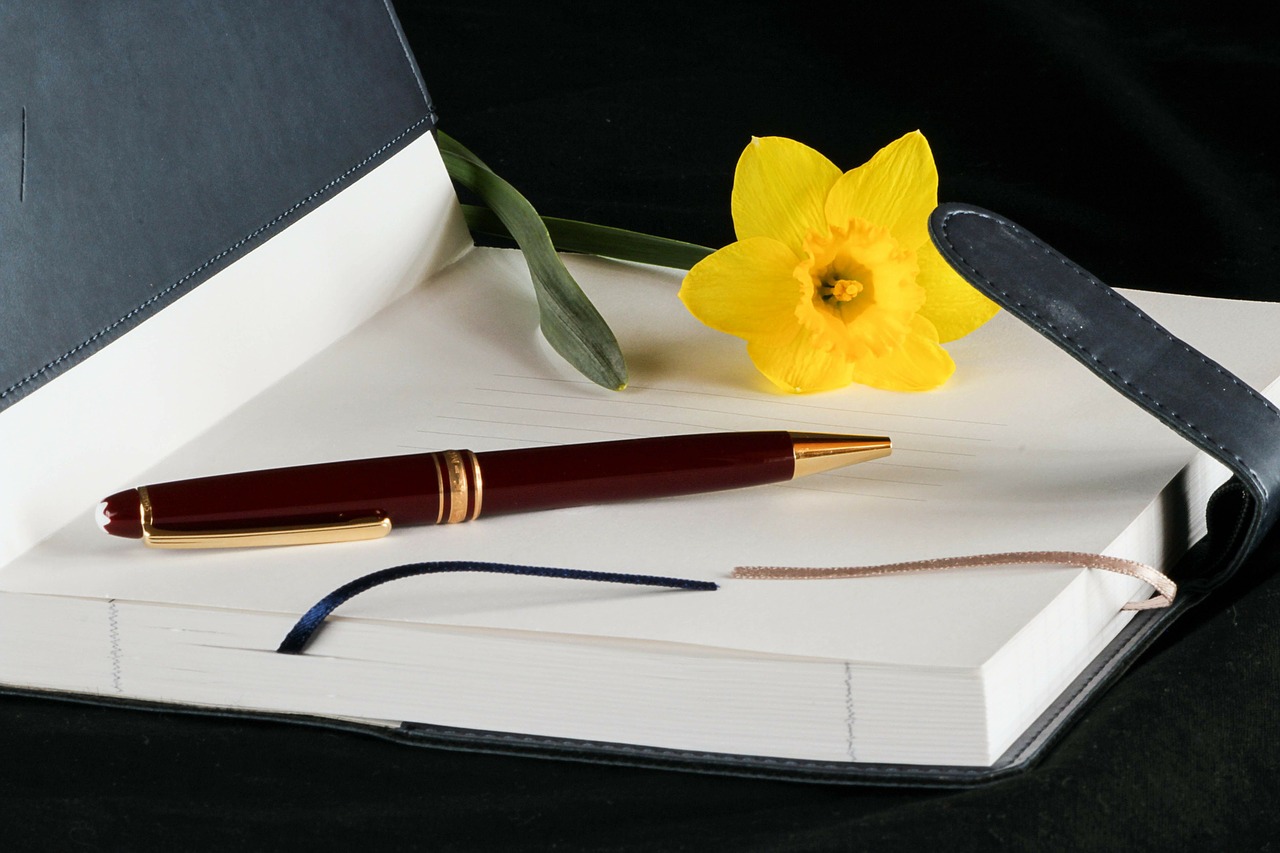
Journaling is not just something certain individuals do, but should really be something everyone does.
Journaling helps in so many ways, from finding triggers to your stress, to helping with physical and mental health, weight loss, and a host of other issues.
Here are some different reasons everyone should journal regularly.
It Helps With Mental and Physical Health
A major benefit to writing in a journal ever day is that it can help both your mental and physical health.
Journaling helps you figure out what is causing your stress, lets you see why your anxiety is plummeting, and can help with your depression.
For physical health, journaling helps you lose weight or manage your weight, find out why you have certain ailments, and narrow down the reasons you aren’t drinking enough water each day.
You can be a healthier person overall just by having a journal.
You Can Feel Safe Releasing Your Emotions
It is hard to talk to someone about what you are thinking or feeling because you are embarrassed or feel like you will be judged for it.
A journal is a good way to express all those feelings and not worry about something reading it or looking at you differently.
Sometimes you need to get certain things out of your mind, and keeping a private journal is the perfect way to do that.
You Find Out New Things About Yourself
Keeping a journal can also help you gain more clarity into who you are and what you want out of life.
Make it a challenge to just start writing on a page, without thinking too hard beforehand. Just start with one word and keep going.
You will be amazed by how much you learn about yourself. You may start venting about something you didn’t know bothered you so much.
It is possible that it is the opposite and you are more positive and optimistic about a person or situation than you thought you would be.
In some cases, you talk more about what you want to accomplish, and this journal helps you to come up with actionable things you can do to achieve those dreams.
It Becomes a Comfort When Dealing With Stress
Stress is a powerful thing, much more powerful than people give it credit for. Stress can affect nearly every part of your life, including your mental and physical wellbeing.
It is important that you try to reduce your stress in any way you can, such as journaling.
Writing in your journal helps you identify what is leading to your stress, which helps you determine what you can do to stop it.
3 Year Journal: Happy Cats Design: 3 Year Journal: Theme Design 8.5"x 11" Paperback undated Planner 150 pages
Reasons Self Discovery Through Journaling is the Key to a Fulfilled Life
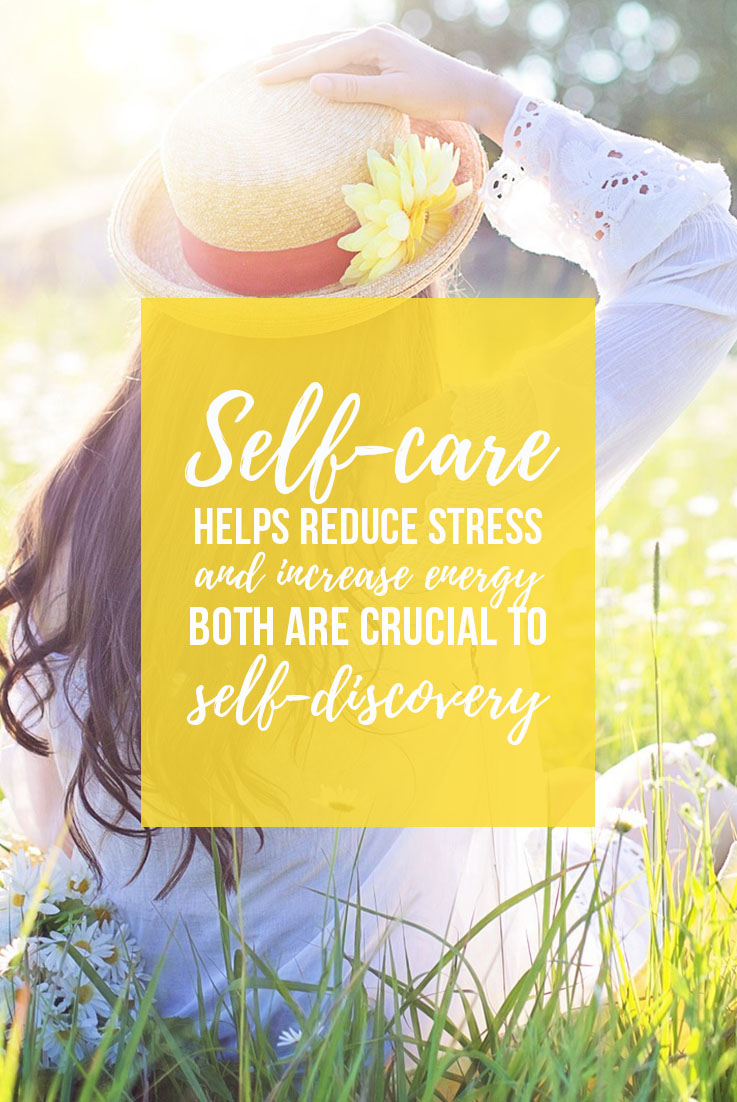
Do you want to live a happier, healthier and more fulfilled life? One thing which could help is journaling.
Journaling has become a popular form of self-discovery; helping people to identify what they want and more importantly – how to get it.
Through regular journaling you can discover more about yourself and your goals than you ever thought possible.
Not convinced? Here’s 5 reasons self-discovery through journaling is the key to a fulfilled life.
1. Helping you to identify with your inner thoughts and feelings
One of the main ways journaling helps with self-discovery, is it enables you to identify with your inner thoughts and feelings. Understanding yourself is key to living a happy, more fulfilled life.
Journals allow you to write freely and openly. You’re free from judgement, which means you’ll often write straight from the heart and uncover things about yourself you never even realized.
Not only does this help you to identify with how you feel, but it also gives you the opportunity to see how you can potentially change your emotional reactions.
Giving you more control over your thoughts and feelings enables you to shut out any negativity and focus purely on the positive – helping you to live a happier life.
2. It’s an awesome stress reliever
Of course, writing things down also acts as an awesome stress reliever. It’s well-known that bottling things up can make problems appear much worse than they really are.
Sharing them in your journal therefore, helps to get your thoughts and feelings out of your head in a safe, non-judgmental environment.
Stress affects absolutely every area of your life in a negative way. So, the first step to living a more fulfilled and happier life therefore, is to eliminate as much stress as you can.
3. You’ll understand what makes you tick
Those who are truly happy and fulfilled, typically know exactly who they are and what they want.
Once you understand exactly what it is you do want and where you want your life to go, you’ll be able to focus on making your dreams and goals a reality.
Journaling really helps you to identify exactly what makes you tick. You can then use that to ensure you are living in accordance to who you are.
Doing more of what makes you tick, adds passion and fulfilment into your life.
4. It motivates you to act
If you find it difficult to motivate yourself to achieve your goals, journaling can be an excellent tool.
After writing down and identifying what it is you want, you can use the journal to determine what you need to do in order to achieve your goals.
Once it is written out in front of you, it does motivate you to act.
As you start working towards your goals and marking off your progress, you’ll gain even more motivation to continue.
5. It encourages positive thinking
Part of your journal-writing exercise is to make a daily list of things you’re grateful for. Over time, this trains the brain to look out for the positives.
Positive thinking has a major impact on your happiness. When you start to look at things in a more positive light, you’ll start to enjoy life a lot more.
It’s also true that positivity breeds positivity. So, the more positive thoughts you begin the have, the more will follow.
These are 5 of the top reasons self-discovery through journaling is the key to a fulfilled life.
It’s not something that’s going to instantly work overnight so don’t expect miracle results right away.
However, the more you do it, the more positive effects it will start to have on your life.
Motivate Yourself to Journal Daily

When starting out journaling for beginners, knowing why you should journal is just the start; you then need to motivate yourself to keep up with it.
It is generally recommended that you write in your journal every day, but at least doing it on a regular basis can be helpful.
Look at these easy ways to motivate yourself to keep writing in the journal.
Have a Good Reason to Keep a Journal
First of all, you need to know exactly why you are journaling in the first place.
You really need to think about the benefits of journaling and decide what your personal reason is for writing in the journal.
This is often a personal decision, such as wanting to figure out why your anxiety or depression has increased, or wanting to express your feelings in a way where you feel safe and not judged.
Decide what your individual reason is, and it will motivate you to keep writing.
Choose the Right Type of Journal
The journal you write in also makes a difference in motivating you to use it. If it is a large journal that doesn’t fit in your purse, you probably won’t use it often.
It should be something you could access at any time, such as putting it in your laptop bag, briefcase, handbag, or even the glove box of your vehicle.
The mood may strike during your lunch break when you’re in the lunch room, and it helps to have the journal available at that time.
Decide On a Method You Want to Use
There may also be a certain type or method of journaling that becomes more motivational to you than other methods.
It is possible you are not someone to write long sentences and paragraphs, you really enjoy keeping track of everything with bullet journaling.
On the other hand, when discovering different forms of journaling, you may want o simply keep a regular daily journal or a food journal if you are trying to lose weight.
Find the type of journal you want to keep, and you will find the motivation to continue doing it each day.
Make it More Creative
Perhaps what will motivate you is making journaling more interesting.
You could be someone ho enjoys colors and pictures more than plain text, so if you have fun colorful pens and various art supplies, you are much more willing to keep up with your daily journaling than using a plain black or blue pen.
Guided Journal, with nature themed writing prompts to contemplate.

Types of Journals You Can Create
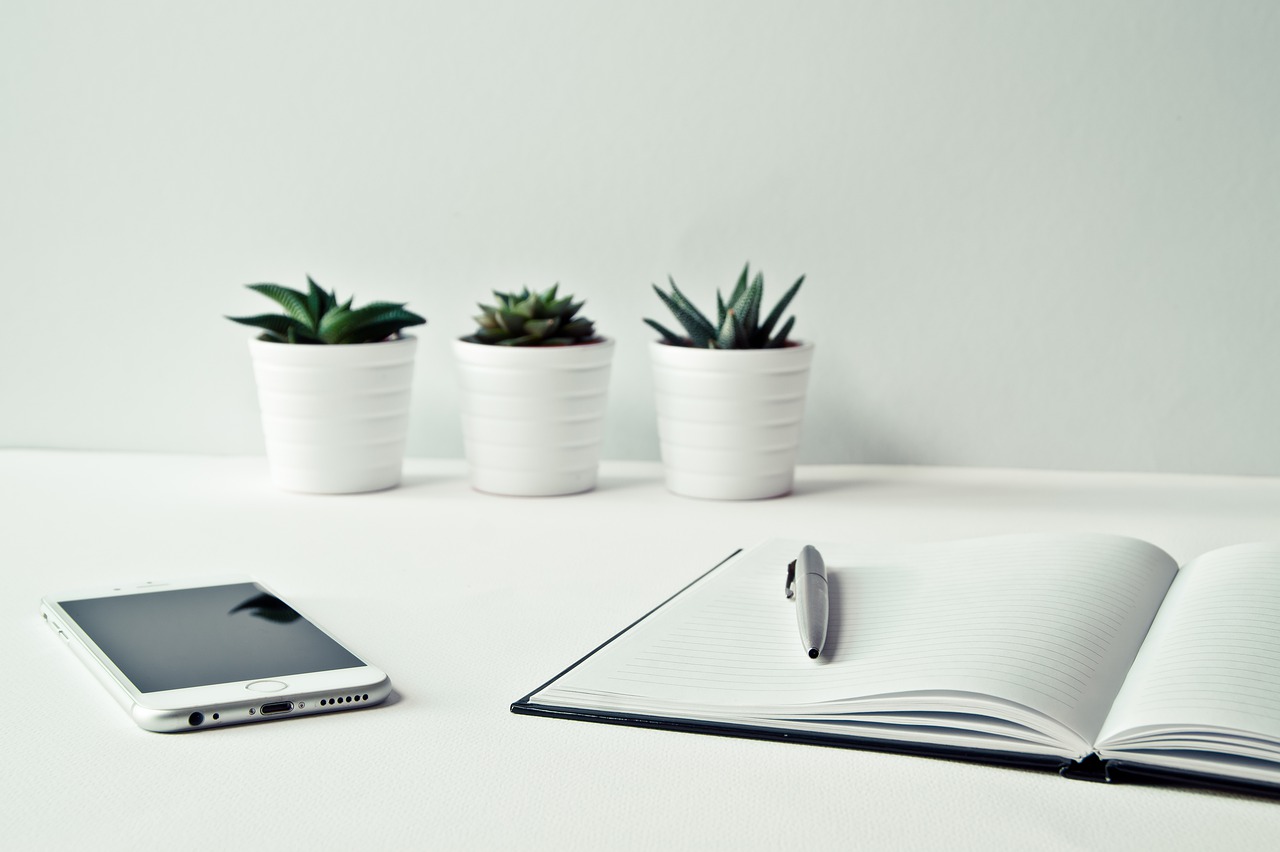
When you begin journaling it will likely occur to you that having more than one type of journal might be the best way to keep everything organized better.
When you have more than one type of journal, you can simply go to the specific journal to work on one issue at a time or keep something organized so you can make better decisions.
1. Bullet Journals – This type of journal is useful for anyone who has lots of to-do lists, loves using a pen and paper, and who enjoys goal tracking.
Your journal should have a table of contents that you create as you add to the journal so you can find things.
You’ll use symbols, colors, and lines to make your bullet journal. You should be able to understand at a glance what’s on the page.
2. Vision Journals – You may have heard of vision boards and this is essentially it, except it’s a journal that helps lead you to your vision.
The way it works is that you set up the journal to have only one goal per page. Then you can write words, add pictures, or draw something that enables you to make plans to reach that goal.
When you do reach the goal, be sure to go back and add the date of achievement.
3. Line a Day Journals – Basically this journal is what it’s called – you write down only one line a day. The same book can be kept and added to for years when you use a Day to a Page Journal.
You will simply write in the journal a short line about what you did that day.
It should be only a sentence or two at the most, and should not take up that much space in your journal. Some people like using a calendar and a pen for this.
4. Classic Journal – This is simply a diary, and you can write whatever you want in it every day. It can be long, short, or you can skip days if you want to.
The classic journal is just like the diary that you maybe kept as a child. You write whatever you want in it daily.
5. Prayer Journal – This is a particular type of journal where you essentially act like your diary or journal is your higher power.
Write God your prayers instead of saying them. Write them down so you remember them and can look back on them.
6. Dream Journal – Some people really like tracking their dreams because they believe that dreams provide signs for life.
If you want to track your dreams, you have to train yourself to write in your dream journal every morning while you still remember the dream.
Write about the dream and then research what it means and write about that too.
7. Food Journal – Write down everything you eat every day. Some people like to include the calorie contents and so forth.
It can also help to write down why you eat it, how you felt about eating it, and things like that.
8. Travel Journal – A wonderful way to remember your travels is to keep a travel journal. Some people like making one for each trip so that it’s easier to remember.
You can write your thoughts in your journal, but you can also attach tickets, pics, and memories.
9. Gratitude Journal – This is just what it sounds like. It’s a journal where you record each day what you’re thankful for and grateful for.
Nothing can be negative in this journal because it’s designed to help you think more positively.
10. Project Journal – This is a handy journal to keep, especially for anyone who regularly works on projects.
Keeping a journal of each project you work on that records actions taken, results, and data, will help you improve every project but will also help you look back on this one with excitement.
If you want to journal to help work through a problem, keeping specific journals for different things is an effective way to go about it.
It’s also a great way to store your thoughts and memories for the future in a more organized and useful manner.
11. Tarot Card Reading Journal. This is for people who like to read cards, especially Tarot, to record their readings and be able to analyze how well they predicted events.
12. Gardening Journal. Perfect for people who want to keep track of what they planted when and where, and how well did it do from season to season etc.
13. Junk Journal. These are a creative form of journaling, creating books from junk mail and old book pages, that are decorated with mementos and scraps, laces, stamps, photographs, and anything that has any meaning or value to the journal keeper. Junk Journals can be sewn together, or signatures tied together in a main cover. Lots of artistic fun!
How to Make Your Journaling More Effective
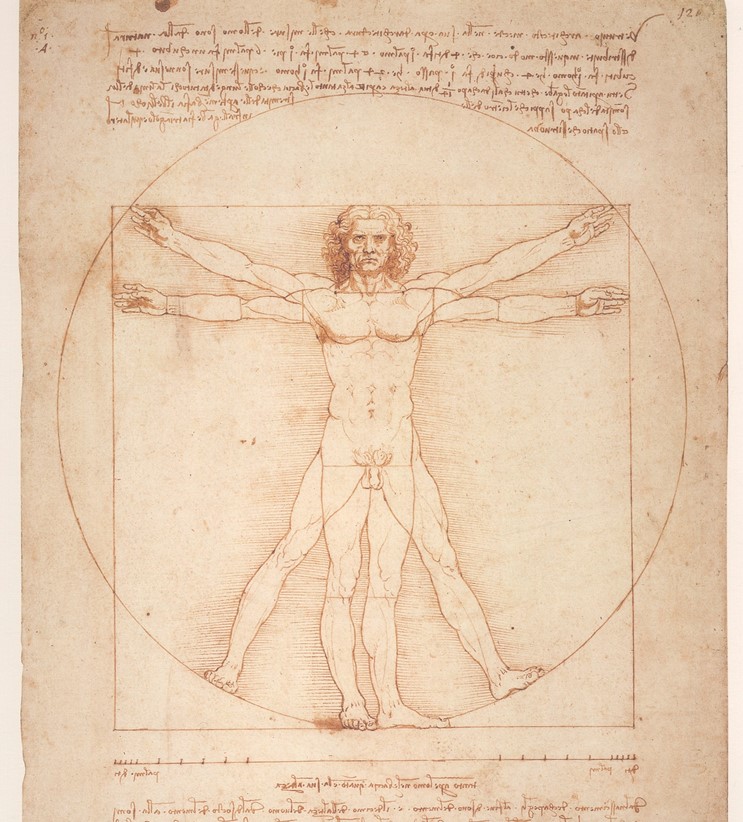
Any type of journal that you keep can be beneficial.
It doesn’t matter if it’s just to document your life or to work through problems - you can use a journal to do it all.
From tracking your projects to documenting vacation to overcoming anxiety, a journal will work for you if you pick the right type and make journaling a ritual.
* Find the Right Medium for You – For some people, that’s pen and paper. Many experts claim that’s the best way because of its simplicity.
However, you have to do what works for you, and what works for you is what you will do daily.
If you make it too hard, you won’t do it.
* Turn Journaling Daily into a Habit – To be most effective, journaling has to go on for a long time.
It’s a long-term strategy to improve your life and not something that is going to have any effect overnight.
For this reason, ritualize your journaling so that it becomes a daily habit.
* Set Up a Comfy Journaling Spot – Find a good space you can journal in each day, one which is relaxing and without stress.
Some people like to keep their journal by their bedside so that each night when they get into bed, they can quickly write in their journals.
* Choose the Right Style of Journal for Your Needs – The type of journal you want to keep depends on how you plan to use it.
You may want to track a project, in which case you’ll need a project journal.
If you want to simply document your life, you’d want a classic journal.
* Use Your Journal to Work Through Life and Reach Goals – Don’t just write in the journal; actively seek to improve something in your life - whether it’s the thoughts which drive your feelings or improving your actions so that you experience more success.
* Consider Using More Than Writing to Document Your Life – You don’t need to just use text. You can use images, pictures, tickets, and other memories inside your journal too.
Sometimes a few pictures and mementos mean more than anything you can write to help you remember.
* Read and Reflect Occasionally – Take at least a few minutes to re-read parts of your journal.
Once you’ve kept it for a year, it’s fun to go back and read the same day from last year to find out what’s different now and what’s the same and why.
* Keep Your Journal Secure – You don’t want to worry about anyone getting into your private business when you’re not around, so keep it hidden. If it’s on your computer, keep it password protected.
If you know why you want to journal, it’ll be easier to figure out which type of journal you need to keep to make your journaling more effective.
Sometimes you just want to document your life, while other times you want to work through something difficult.
It really depends on your goals and the point of the journal.
Reaping the Benefits of a Gratitude Journal

It might seem like a pipe dream that writing in a journal could be so beneficial. But every journaling for beginners should start with a basic gratitude journal.
The scientific evidence is in, and gratitude journals do benefit you in big ways if you keep one for the long term and use it daily.
Its also an easy form of journaling as there is always something to write about every day that you are or can be grateful about.
Experience Stronger and More Fulfilling Relationships
It’s so simple, but it can be hard to accept. You are the one who makes yourself happy with your own choices.
Another person cannot make you happy or grateful. Only you can do that.
But something amazing happens when you express gratitude often – your relationships simply open up and become better.
Those that don’t, you start to recognize for what they are and let them go.
Become Physically Healthier
Being grateful for the ability to move and breathe will eventually cross over into wanting to ensure that you can always do that.
Therefore, you’ll be more motivated to go on walks, eat right, stay hydrated, and live in gratitude for every aspect of your life.
Increase Your Mental Dexterity
The ability to take lemons and turn them into that sweet, delightful state drink of Arizona can be gained by keeping a gratitude journal.
The main reason is that you will learn on even a bad day to pick out the good in it. That requires a good imagination and creativity and thinking on your feet.
Feel Less Aggression in Your Life
It’s hard to feel aggressive if you are happy and grateful. It’s okay to be angry about injustices in the world without being aggressive.
But if you feel angry a lot due to your life, it’s really due to not finding the things to be grateful about. There is almost always something for most people.
Act and Become More Empathetic
As you write more and learn to forgive yourself as you seek to fill your mind with thoughts of gratitude, you will start seeing others differently.
You’ll have more ability to put yourself in their shoes and see things from their way without judgment. It happens when you learn to forgive yourself.
Get More Restful Sleep
If you’re not anxious but go to sleep each night feeling thankful for everything you’ve experienced (or at least most of it), it’s easier to sleep because you have less anxiety.
Get More Done Every Day
Due to feeling more rested, less stressed, and more grateful, you’ll have a lot more energy to get things done every day.
That’s always going to make you feel even more thankful because good things happen due to productivity.
Feel Better about Yourself
You can’t help but feel better about yourself when you have improved so many good qualities about yourself.
Your self-esteem will go up when you express gratitude for what your mind and body can do for you.
If you want to be happier, get more done in life, and experience real joy in life, a gratitude journal can be the way to achieve it.
The guiding thing to remember is that your thoughts cause your feelings, and you are the one in control of the actions you take once you accept your feelings.
Accepting that you do have control is half the battle, and your journal will make it clear that you do.
The full colour beautifully illustrated writing prompts in these Angel & fairy themed thankfulness diary sets make it easy and fun to write every day about the big and small joys in your life. Stop taking your life for granted and attract even more abundance every day!Journaling to Help Combat Loneliness
It really doesn’t matter what your issue is; if you want to overcome it, you can find a way to use journaling to help.
You can set up a particular type of journal like a gratitude journal to help yourself become more thankful for what you do have, and you can also keep a bullet journal and set goals to overcome the loneliness you’re experiencing if more social connections will do it.
The possibilities are truly endless.
Let's look in more detail at how journaling can help combat loneliness.
Allows You to Explore Your Thoughts and Feelings
Journaling can help to simply focus on writing expressively your thoughts and feelings surrounding the loneliness that you are feeling.
If you can write about each part of your feelings, and when you first noticed them, you may identify the core cause of the feelings.
When you do that, you can develop a plan to solve the problem.
Gives You a Way to Express Your Thoughts and Feelings
Writing is a time-honored way of expressing thoughts and feelings safely. You never have to let anyone read it.
You can write it down in the form of letters to people, or to yourself, or even to someone you don’t know that you keep for yourself when you’re done but completed to get it out in the light to study by you.
Provides a Way to Understand Your Thoughts and Feelings
Sometimes you may not even know what you are feeling. It can be hard to understand and express what we feel even to ourselves.
But when you focus on writing it down, it can help you understand everything in a new way from a new direction that you may not have considered.
Helps Foster Social Connections
It might seem like a strange notion to consider, but writing can even help you foster social connections.
The main reason is that as you read through what you’ve written, you’re going to discover ways to overcome your situation to find the healthy social connections you need.
Helps You See the Big Picture More Easily
Looking back at the things you’ve written over time about any topic can provide insight into the situation that you never saw coming.
That’s because having the journal to look back on provides a way to see the bigger picture.
You may feel super-lonely today, but it’s still less than yesterday, which lets you know it’s going to get even better from here.
Provides a Means to Understand and Organize Your Thoughts
Writing things down, especially when you choose a particular method like the bullet journal, will help you get your thoughts down in an organized and useful way.
When your thoughts are a jumble, you might not see the real point but when they're organized, it makes all the difference.
For example, in writing it all down, you may realize that your loneliness is really due to being with the wrong partner who does not value you.
You’ll Sharpen Your Observation Skills
Once you start writing regularly and it’s become a habit, something amazing will happen.
Your observation skills will be sharper, and you’ll have an easier time coming up with descriptive and expressive words to use in your journal.
This is going to lead to even more breakthroughs due to having more clarity.
Focuses Your Gratitude Skills
Something funny happens when writing in a journal, even if it’s not specifically a gratitude journal per se.
What happens is that as you’re writing (even if you’re upset), you’ll become calmer - especially when you read it back.
You’ll become grateful for what you do have that is positive in your life, even if it’s simply the ability to breathe in and out today.
If you want to combat loneliness, consider writing about and exploring why you feel lonely.
You also should remember to read the definition of "loneliness" to ensure that this is what you are really experiencing.
No one ever needs to be lonely, even when they are alone, if they know how to work through their thoughts and feelings. Journaling for beginners can help with that.
Important!
Journaling Boosts Your Mood
If you really want to boost your mood, keeping a gratitude journal is where it’s at.
All you have to do is once a day, preferably before bed, write down what you’re grateful for today.
It might not seem like much but it’s very powerful for going to sleep, thinking positively about your life.
Tips to start a Travel Journal

An excellent way to remember everything you’ve done is to keep a travel journal.
This is a journal which is usually devoted to one trip at a time.
You’ll write and add mementos and memories into the journal so that you can look back on it with pride and happiness.
Plus, you can share your journey with others.
Start with the Planning Phase
The journal should begin the moment you start planning your trip. You can use the journal to plan by writing the things you need to do and then checking off what you completed for the trip.
Ask yourself what you want to accomplish on the trip.
What do you want to experience, what do you want to learn, and when will you do each activity?
Write Daily during Your Trip
Once you’re on the trip, don’t miss out writing on any day. Try to find time to write in your journal when the experience is vivid in your mind.
You might want to consider taking a recording device with you so you can record your initial thoughts while you’re doing it.
Add Physical Mementos to the Journal
Don’t just add text to your journal - also add color, images, and mementos.
For example, save your tickets, a napkin from a restaurant, or other little things you touched during your trip.
You don’t even have to buy anything extra to do this part.
Remember to Write the Good and the Bad
You don’t want to look back on the trip and see that it’s not written realistically.
It’s perfectly okay to talk about what was good and bad about the trip. When you do that, you can plan differently next time.
Maybe you learned that you need new shoes if you’re going to walk that much? It’s a good thing to write down.
Write What You’d Do Differently
If you ever go back to that travel destination, what would you do now that you’ve done it once?
Would you change what you chose to do to something else?
Mention What Disappointed You and What Thrilled You
Talk about the things that were disappointments. Were the people nice or rude? Did the train smell like excrement?
That might seem like a strange thing to write, but it will help you remember even more.
Also, did something unexpected happen that thrilled you and excited you?
State What You Learned from Each Day
Add some facts that you are learning about your destination, the people you met, the people you traveled with, and yourself.
For example, did you learn that you love people watching when you didn’t know you did? Did you discover a historical fact previously unknown?
When It’s Over, Finish by Writing a Last Reflective Entry
After the trip is over, take the time to write one last entry where you reflect finally again on everything you learned about the trip.
Talk about what it was like, what you learned, what surprised you, and so forth.
Name the thing you’d do again and the thing you’d not do again, plus something you’d do next time.
A travel journal will improve your memory of the event. You’ll retain more information and - believe it or not - it’ll help you make the next trip even better.
Use these tips if you want to get the most out of your travel journaling now and in the future.
Keep researching
One thing that can really help you make your journaling work is to learn how to keep one effectively.
Make some journaling rules, do it every day to create a habit, and keep it private unless you decide to let your therapist see it or you decide to use it to help others.
This is for you and only you for the most part.
Here are some interesting journaling for beginners resources, and since you can buy online and get it delivered, that takes even more stress off you.
Buying your products online here on these links will usually save you on retail prices and may even include free shipping to your door sometimes.
Read the customer
reviews here to save time and legwork when comparing products.
I have created many forms of journals, and I hope that you find some that resonate with your needs and tastes!
Discover Yourself With Gorgeous
& Fun GRATITUDE JOURNALS:
Below here I'm featuring more pages with helpful how-to-do-it tips on journaling for beginners.
Feel free to submit your own story or article about it, and I will create your own page here with your contribution for the community to read.
Latest Tips for How To Do It Yourself: Self Help & Self Growth
Latest Tips for How To Do It Yourself:
Read the latest updates & the rest of the how-to tips here:
Click the Title links below to see the latest how to do it tips and contributions to this page...
Find Inner Peace - Get Back To Nature
Do you ever feel disconnected? Maybe you're so preoccupied with everything in your daily existence that you hardly even have time to realize what's going …
Top 5 Journaling Tools You'll Need When You Start
When you’re just starting to journal, you’re going to need a few essentials to make your life easier. You can start with just a pen and journal, but if …
Journal To Make Plans for the Future
When you think about becoming happier in your normal life, what do you think about?
Chances are, you think about what you can change. Not necessarily …
Healing Negative Childhood Memories With Journaling
Have you ever found yourself confronting painful memories of situations you experienced when growing up? Remembering these situations can be like re-opening …
Use the Journal for Recovery
An amazing way you can use journaling is for recovery. This can be recovery for anything in your life that you are working through, whether it is from …
Create a Self-Care Journaling Routine
Unless you have been living under a rock, you are probably well aware of what self-care means. It is the act of doing something for you, and only you, …
Popular Types Of Journals For Everyday Tracking
Fitbook Fitness and Nutrition Journal
One of the number one reasons that people don’t get into shape and don’t focus on nutrition is because they …
How Journaling Can Help with Mental Health Issues
Keeping any type of journal will help with improving any mental health issues. However, if you really want to tackle a specific problem you’re having, …
Keep Calm and Write It Down
Have you ever been in that place where your mind is racing and the things you need to attend to are on a perpetual loop playing in your head, and you just …

"Power Tips" magazine is back!
You Get A Free Complete Self Help Report delivered to your email box every edition, plus you get a free PLR article and other great gifts!
SUBSCRIBE BELOW ... I promise you will want to USE what you learn!
I really want to know what you think of this site, this page, and to hear your tips or suggestions about it.
So please share your story or simply add a Comment in the comment box.
If you feel that the information on this page has been useful to you please give it a Like or share it with your friends - thanks!!
"You are a life Saver!!
I recently discovered this site and I can tell you that my life has not been the same. I now come here EVERYDAY and spend at least 1 hour.
I used to spend that time browsing online fashion and beauty
magazine which just means that I spend more. Now I have replaced that
habit with coming here.
In future I will think about contributing articles as well. Thank you! Thank you!! Thank you!!! and God bless"
Contact Us | About Us | Terms of Use | Privacy Policy | FAQ | Testimonials
Amazon and the Amazon logo are trademarks of Amazon.com, Inc. or its affiliates. As an Amazon Associate I earn from qualifying purchases. Product prices and availability are accurate as of the date/time
indicated and are subject to change. Any price and availability
information displayed on [relevant Amazon Site(s), as applicable] at the
time of purchase will apply to the purchase of this product.
Back to HOME PAGE of this journaling for beginners section of the site.
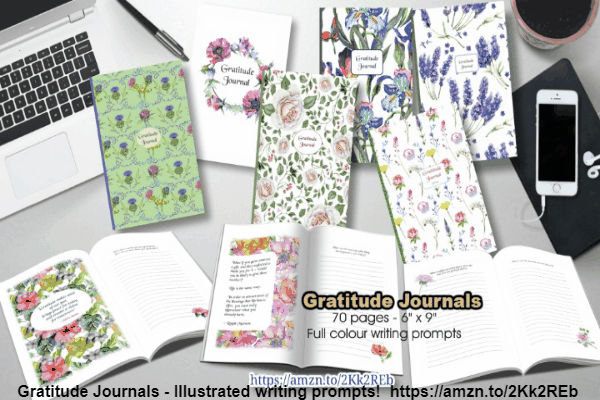

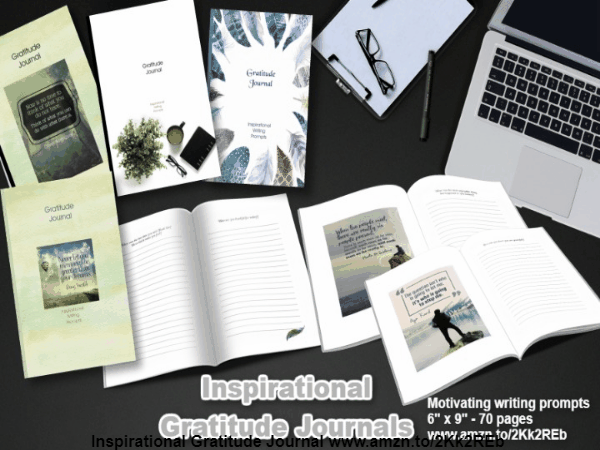






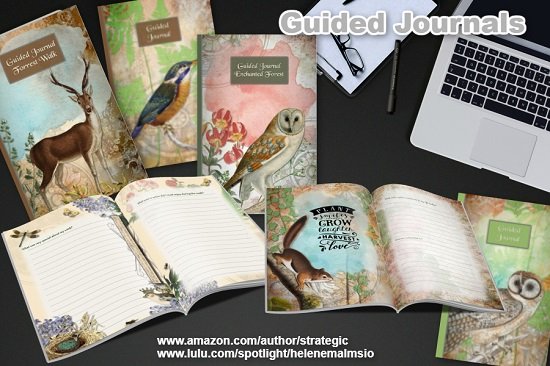


















New! Comments
Have your say about what you just read! Leave me a comment in the box below.